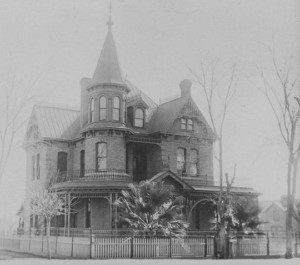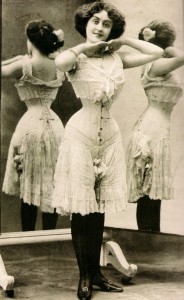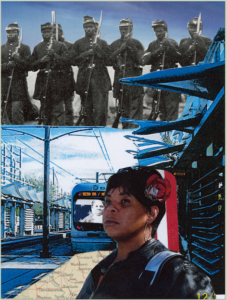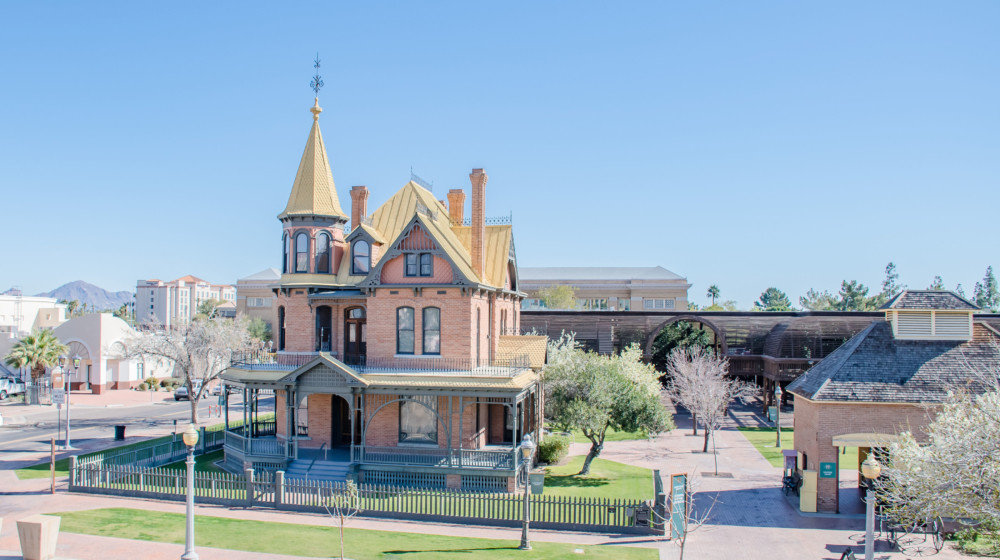Changing History
Did you know…
 2020 is a big year for us here at Heritage Square. This year we’re celebrating the Square’s 40th anniversary, and the 125th anniversary of the Rosson House. So, we’re taking a look back at what has happened at the Square, at Phoenix and Arizona, the United States, and the world in the intervening years.
2020 is a big year for us here at Heritage Square. This year we’re celebrating the Square’s 40th anniversary, and the 125th anniversary of the Rosson House. So, we’re taking a look back at what has happened at the Square, at Phoenix and Arizona, the United States, and the world in the intervening years.
Since the Rosson House was built in 1895:
- Arizona became the 48th state.
- Women and Native Americans were given the right to vote.
- We experienced two World Wars and multiple smaller ones.
- We experienced the Great Depression.
- We experienced two world-wide pandemics (added in January 2021)
- Automobiles and airplanes have become commonplace.
- People have been to outer space, and men have walked on the moon.
- Radio, movies, and television were invented.
- Twenty-two Presidents have been in office.
Since Heritage Square was established in 1980:
- The International Space Station was placed into orbit, and robots have been sent to study Mars.
- Sandra Day O’Conner became the first woman to serve on the Supreme Court.
- Barack Obama became the first African-American elected as President of the United States.
- Cell phones and the Internet were invented.
- September 11th happened.
- Seven Presidents have been in office.
 If you were a fly on the wall at Heritage Square for the last 40 years (with some astounding longevity), you would have seen a lot of changes going on inside the organization as well. People come and go, but some have stayed for the entire 40 years and then some. We have changed from an organization run entirely by volunteers, to one with professional staff (though we still rely on the wonderful volunteers we have!). We have also, over time, changed the stories we tell. As we learn (and sometimes re-learn) the histories of the people that lived in and around what we now call Heritage Square, we update the information we give the public. And as time changes, stigmas around certain stories no longer exist.
If you were a fly on the wall at Heritage Square for the last 40 years (with some astounding longevity), you would have seen a lot of changes going on inside the organization as well. People come and go, but some have stayed for the entire 40 years and then some. We have changed from an organization run entirely by volunteers, to one with professional staff (though we still rely on the wonderful volunteers we have!). We have also, over time, changed the stories we tell. As we learn (and sometimes re-learn) the histories of the people that lived in and around what we now call Heritage Square, we update the information we give the public. And as time changes, stigmas around certain stories no longer exist.
For example, our most popular VIP tour over the last couple of years has been Victorian Secrets, which focuses on sex, toilets, periods, and caging your children (new this season!). On a more personal note to Heritage Square, both Dr. Rosson and Mr. Gammel had experiences in their lives that may not have been on the tip of a guide’s tongue to share with Museum visitors: Dr. Rosson was court-martialed and dishonorably discharged from the army (read more about that here), and we’ve recently found an article that confirmed not only did Billie Gammel get arrested here in Arizona during Prohibition for illegally “disposing of intoxicating liquor” (read more about that here), but he was also arrested in Mexicali in 1933 for suspected arson when his bar burned down, and was facing trial for operating an illegal slot machine in Phoenix in 1936. We’re still looking to see what happened next, but when we find out, you can bet that will be part of the story we tell our visitors!
 We’re also expanding the histories we tell about people who lived at the Square to include individuals and families that didn’t own or even live in the Rosson House: We are doing more research on Mary Johns, the Native American Maricopa woman who worked for the Higleys; the Haustgens, the sisters and seamstresses who owned and rented out rooms in three of the houses at Heritage Square; the Silvas, who owned the house now occupied by Anhelo Restaurant; neighborhood segregation in early Phoenix; and beginning this month we have The Great Migration: Indiscernibles in Arizona, an exhibit about the experience of African-Americans in Arizona, on display.
We’re also expanding the histories we tell about people who lived at the Square to include individuals and families that didn’t own or even live in the Rosson House: We are doing more research on Mary Johns, the Native American Maricopa woman who worked for the Higleys; the Haustgens, the sisters and seamstresses who owned and rented out rooms in three of the houses at Heritage Square; the Silvas, who owned the house now occupied by Anhelo Restaurant; neighborhood segregation in early Phoenix; and beginning this month we have The Great Migration: Indiscernibles in Arizona, an exhibit about the experience of African-Americans in Arizona, on display.
As we head into the next decade, it’s important to remember that while facts about history rarely change, our interpretation of them is always changing. Our forebearers had different ideas and perspectives than we do about slavery, the roles of women in society, and the treatment of minorities. The fact that we think differently about those things than they did show how our society has grown and developed over time. That we’re able to make history personal and more interesting, as well as bigger and more inclusive by telling more diverse stories bodes well for the future. You can only learn from history, after all, if everyone’s stories are shared.

Learn more about the changing face of history by reading these articles by The Atlantic and NPR.
Archive
-
2024
-
July (1)
-
June (1)
-
May (1)
-
April (1)
-
March (1)
-
February (1)
-
January (1)
-
-
2023
-
December (1)
-
November (1)
-
October (1)
-
September (1)
-
August (1)
-
July (1)
-
June (1)
-
May (1)
-
April (1)
-
March (1)
-
February (1)
-
January (1)
-
-
2022
-
December (1)
-
November (1)
-
October (1)
-
September (1)
-
August (1)
-
July (1)
-
June (1)
-
May (1)
-
April (1)
-
-
2021
-
December (1)
-
November (1)
-
October (1)
-
September (1)
-
August (1)
-
July (1)
-
June (1)
-
May (1)
-
April (1)
-
March (1)
-
February (1)
-
January (1)
-
-
2020
-
December (1)
-
November (1)
-
October (1)
-
September (1)
-
August (1)
-
July (1)
-
June (1)
-
May (1)
-
April (1)
-
March (1)
-
February (1)
-
January (1)
-
-
2019
-
December (1)
-
November (1)
-
October (1)
-
September (1)
-
August (1)
-
July (1)
-
June (1)
-
May (1)
-
April (1)
-
March (1)
-
February (1)
-
January (1)
-
-
2018
-
December (1)
-
November (1)
-
October (1)
-
September (1)
-
August (1)
-
July (1)
-
May (1)
-
April (1)
-
March (1)
-
February (1)
-
January (1)
-
-
2017
-
December (1)
-
November (1)
-
October (1)
-
September (1)
-
August (1)
-
July (1)
-
June (1)
-
May (1)
-
April (1)
-
March (1)
-
February (1)
-
January (1)
-
-
2016
-
December (1)
-
-
2015
-
2014
-
July (1)
-
